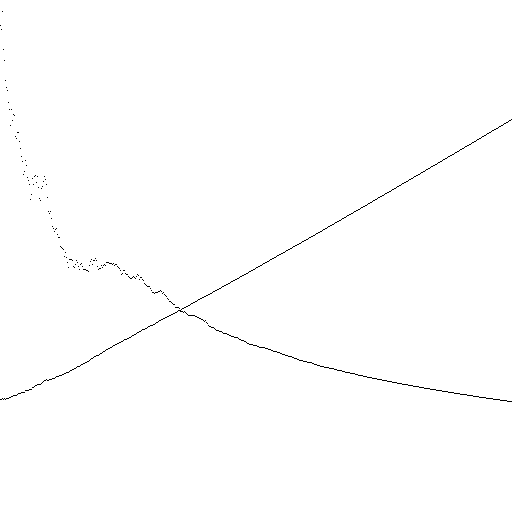Given a positive integer $n$, let $f_1(n)$ denote the number of pairs of consecutive prime numbers $\leq n$ which are incongruent modulo 3, and let $f_2(n)$ denote the number of pairs of consecutive prime numbers $\leq n$ which are congruent modulo 3. (Thus in particular $f_1(n) + f_2(n) = \pi(n) - 1$).
Numerically, one observes a strong bias towards $f_1(n)$ being larger than $f_2(n)$. In fact, the paper
Robert J. Lemke Oliver, Kannan Soundararajan: Unexpected biases in the distribution of consecutive primes
states a fairly general conjecture which would imply that $$ \lim_{n \rightarrow \infty} \frac{\log(f_1(n) - f_2(n))}{\log{n}} \ = \ 1. $$ The outcome of numerical computations seems to be in line with this claim.
Question: Which is the strongest result in this direction which is currently known, or which can be derived from known results by straightforward methods? -- In particular, can it at least be shown that there is no $n$ such that $f_2(n) > f_1(n)$?
The following plots of the ratio $q(n) := f_1(n)/f_2(n)$ and of the difference $d(n) := f_1(n) - f_2(n)$ range from $n = 2^{12}$ to $n = 2^{34}$ in logarithmic scale on the horizontal axis, and from $q(n) = 1$ to $q(n) = 2$ in linear scale, respectively, from $d(n) = 1$ to $d(n) = n$ in logarithmic scale, on the vertical axis:

Observe that while the graph of $d$ almost looks like a straight line, it seems to have in fact a slightly, but steadily increasing slope.
